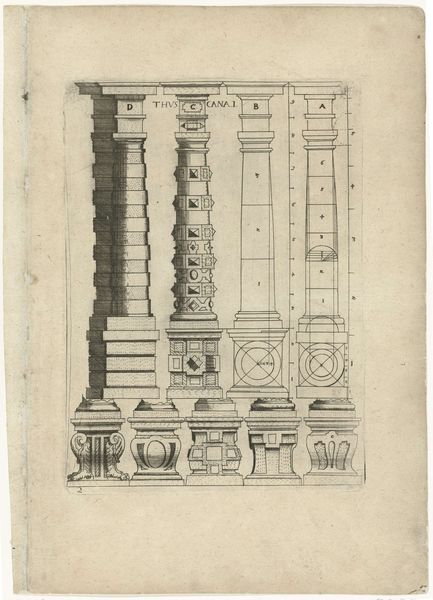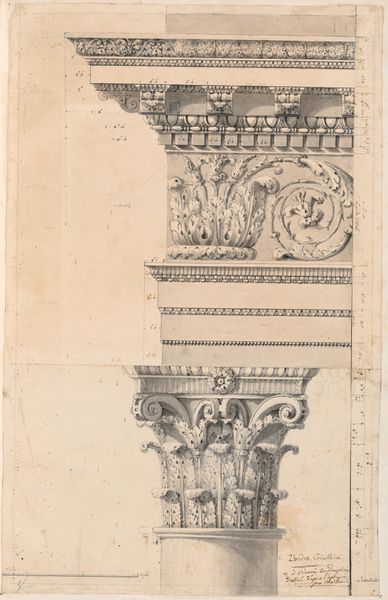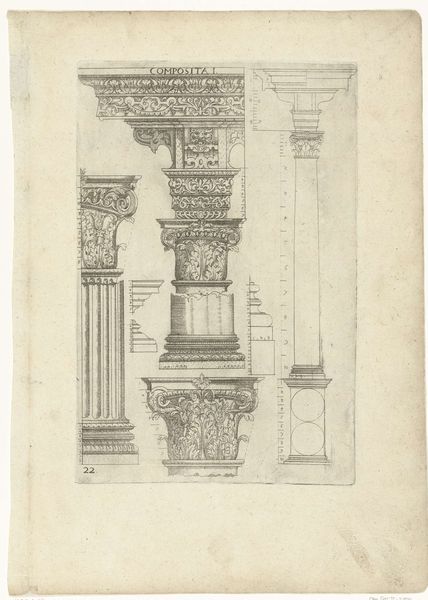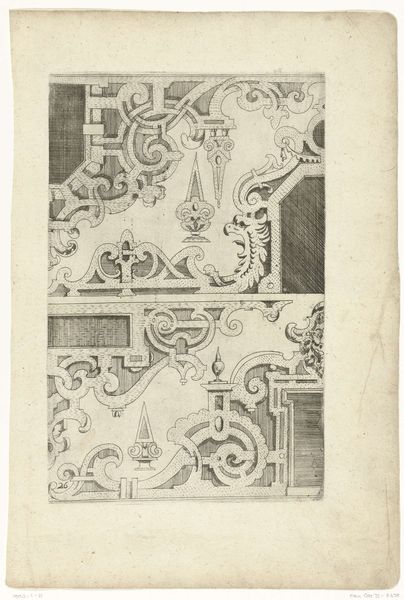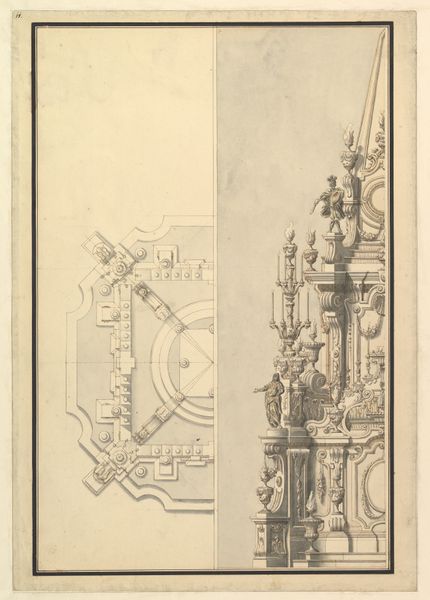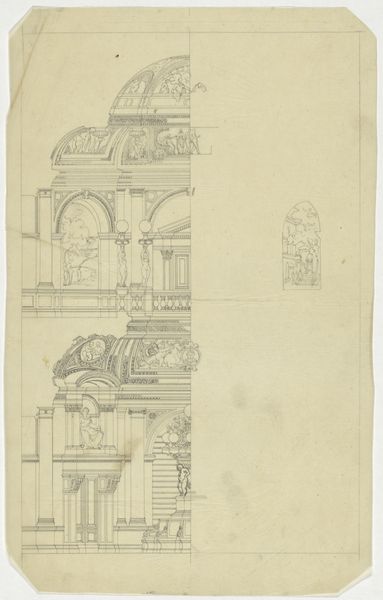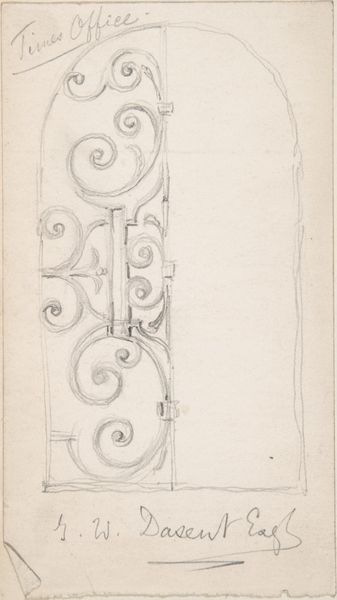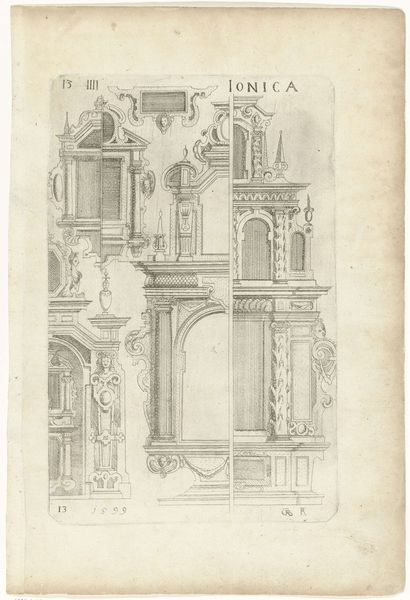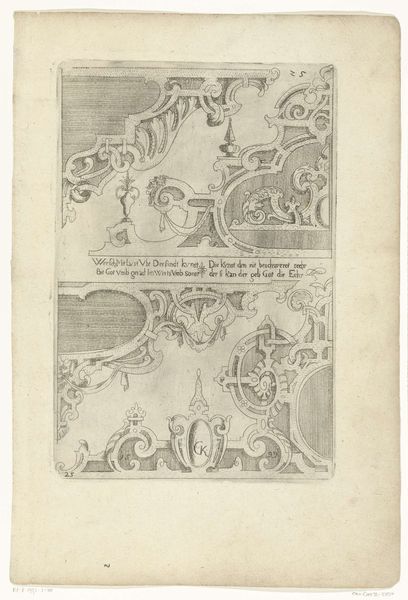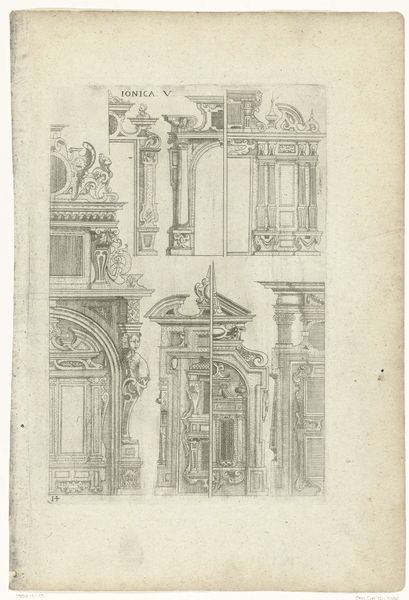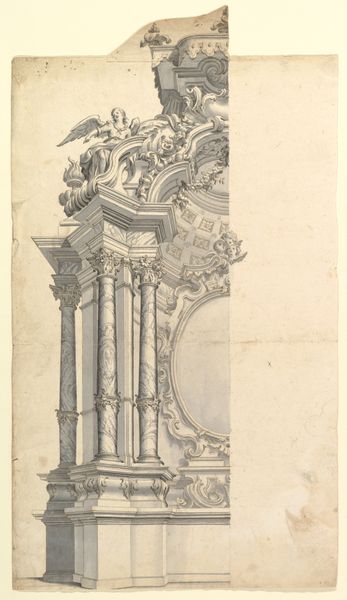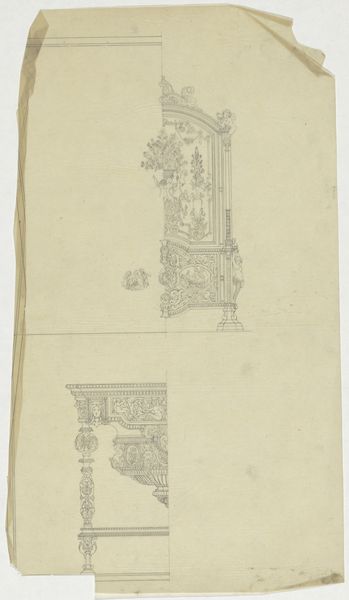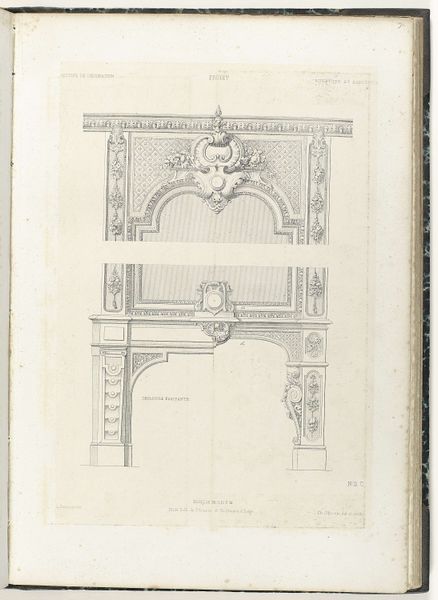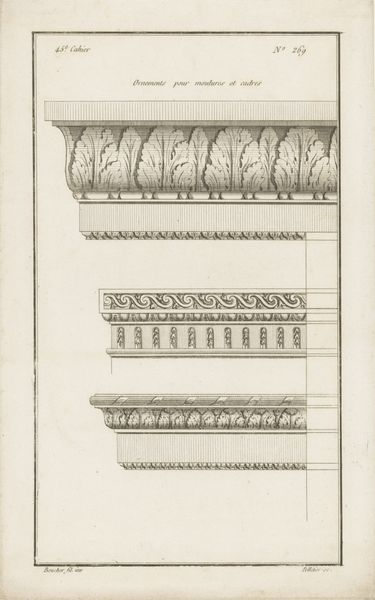
drawing, paper, ink, pencil, architecture
#
drawing
#
aged paper
#
toned paper
#
light pencil work
#
old engraving style
#
paper
#
11_renaissance
#
personal sketchbook
#
ink
#
ink drawing experimentation
#
geometric
#
ancient-mediterranean
#
pen-ink sketch
#
pencil
#
pen work
#
sketchbook drawing
#
sketchbook art
#
architecture
Dimensions: height 281 mm, width 193 mm
Copyright: Rijks Museum: Open Domain
This print of Ionic capitals, a cross-section, and various details was made by Gabriel Kramer around the turn of the 17th century. It reflects the period’s fascination with classical forms, which was fueled by architectural treatises, archaeological discoveries, and the increasing professionalization of architectural training. Kramer’s print belongs to a larger cultural context, one in which the institutions of architecture sought to assert their cultural authority by standardizing design and codifying its principles through engravings such as this. The classical orders were seen as objective and universal, and these prints offered a tangible way to promote classical architecture among architects and patrons. These design principles underpinned civic and domestic structures, reinforcing existing social hierarchies. To truly understand works such as these, one must consider the patronage systems that shaped artistic production and the economic structures that allowed for the dissemination of architectural ideas.
Comments
No comments
Be the first to comment and join the conversation on the ultimate creative platform.
